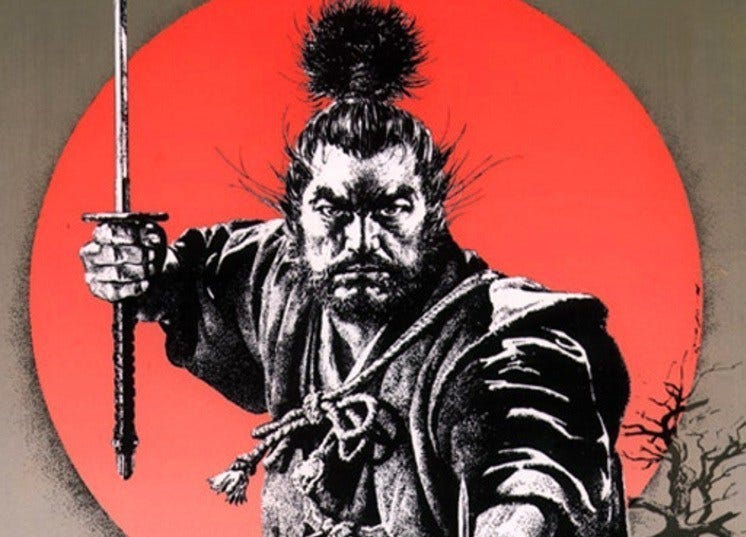Bushido in a Modern Context: The Way of the Warrior in Today’s World
Bushido, the code of conduct followed by samurais during feudal Japan, remains an enduring symbol of honor, courage, and loyalty. While the era of samurais has long passed, the essence of bushido still holds relevance in contemporary society. These principles offer a timeless guide, not only for individuals but also for leaders, enabling them to navigate the intricate challenges of contemporary society. These principles, rooted in trust, honor, and integrity, provide a solid foundation upon which to build a more harmonious and just society. By adapting and applying these principles to the unique challenges we face today, we can tap into the enduring wisdom of Bushido and traverse the path of the modern warrior.
The Code of The Samurai
- Discipline and Self-Control: In a world filled with distractions and temptations, the principle of discipline from Bushido remains invaluable. Cultivating the ability to focus, set goals, and exercise self-control is as relevant today as it was in feudal Japan. Whether in the workplace or in personal endeavors, discipline enables individuals to achieve their objectives and lead more fulfilling lives.
- Integrity and Honesty: Bushido emphasizes unwavering integrity and honesty. In the modern context, these principles are essential for building trust and maintaining strong relationships, whether in business, politics, or personal life. Integrity forms the foundation of ethical behavior and responsible citizenship.
- Loyalty and Commitment: Loyalty to one’s commitments and obligations is a cornerstone of Bushido. In the contemporary world, this translates into fulfilling promises, standing by one’s values, and being loyal to friends, family, and colleagues. Loyalty fosters a sense of community and belonging.
- Courage in the Face of Adversity: Modern life presents its own set of challenges, and the courage to confront adversity is as crucial as ever. Whether facing career setbacks, personal crises, or societal issues, the Bushido principle of courage encourages individuals to persevere, adapt, and overcome obstacles.
- Empathy and Compassion: While Bushido is often associated with warriors, it also promotes empathy and compassion. In today’s interconnected world, understanding and empathizing with the experiences and perspectives of others are essential for fostering harmonious relationships and addressing global challenges such as inequality and social justice.
- Constant Self-Improvement: Bushido places a strong emphasis on constant self-improvement. In the modern context, this means embracing lifelong learning, adapting to new technologies, and staying open to change. The commitment to self-growth is key to thriving in a rapidly evolving world.
- The Pursuit of Balance: Modern life can be overwhelming, with its demands on time, energy, and attention. Bushido’s emphasis on balance encourages individuals to find equilibrium between work, family, personal pursuits, and well-being. Achieving this balance is crucial for overall happiness and fulfillment.
- Appreciation of Nature: In today’s world, environmental consciousness is paramount. Bushido’s reverence for nature and the environment aligns with the contemporary imperative to protect our planet. Being responsible stewards of the environment is a duty we owe to future generations.
Righteousness, honesty, and integrity
One of the primary aspects of bushido that is applicable in a modern context is its emphasis on personal ethics. The principles of righteousness, honesty, and integrity embedded within bushido provide a framework for individuals to navigate the ethical dilemmas of the contemporary era. In a world dominated by rapid technological advancements and shifting moral landscapes, cultivating and upholding one’s personal ethics is paramount. The practice of self-discipline, humility, and moral character, which are central to bushido, can guide individuals to make ethical decisions in their personal and professional lives, fostering trust and respect within their communities.
Benevolent leadership, selfless service, and courage
Moreover, the leadership qualities embodied by bushido can greatly benefit leaders in today’s complex world. Bushido highlights the significance of benevolent leadership, selfless service, and courage. Today’s leaders face numerous challenges, ranging from economic disparities to environmental issues. By embracing the bushido spirit, leaders can lead by example, demonstrating kindness, empathy, and self-sacrifice. This approach can foster a sense of unity among their team, strengthen relationships, and inspire collective action towards addressing societal problems. By embodying bushido’s values, modern leaders can create a positive impact, working towards a more equitable and sustainable future.
Social responsibility or personal integrity
Bushido’s relevance in a modern context extends to moral decision-making. The ethical framework provided by bushido can guide individuals when facing complex moral choices, such as those involving social responsibility or personal integrity. By following the spirit of bushido, individuals can prioritize the greater good over selfish desires, promoting justice and fairness. Furthermore, bushido’s emphasis on accountability and responsibility encourages individuals to take ownership of their actions and strive for continuous self-improvement, fostering a culture of integrity and moral rectitude in society.
The Spirit of Bushido for the Modern World
Integrating the essence of Bushido into our daily lives allows us to harness its profound wisdom, ultimately fostering a world that is not only more just but also morally conscious. By embodying the principles of Bushido, we can contribute to the creation of a society where trust, honor, and integrity are cherished values, guiding our actions and decisions.
While our world has undeniably undergone significant changes, the principles of Bushido remain a beacon of guidance for those seeking to lead meaningful lives in our complex and ever-changing society. By embracing these principles and infusing them into our daily existence, we can collectively work towards a world that upholds justice and moral consciousness.
Further Reading – Hagakure is also known as The Book of the Samurai





